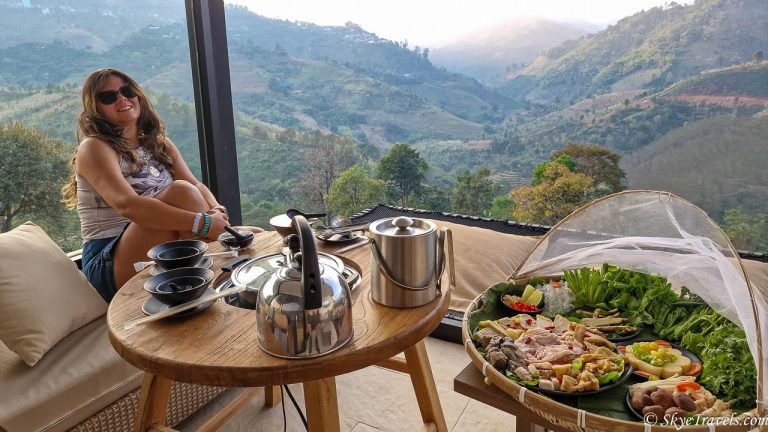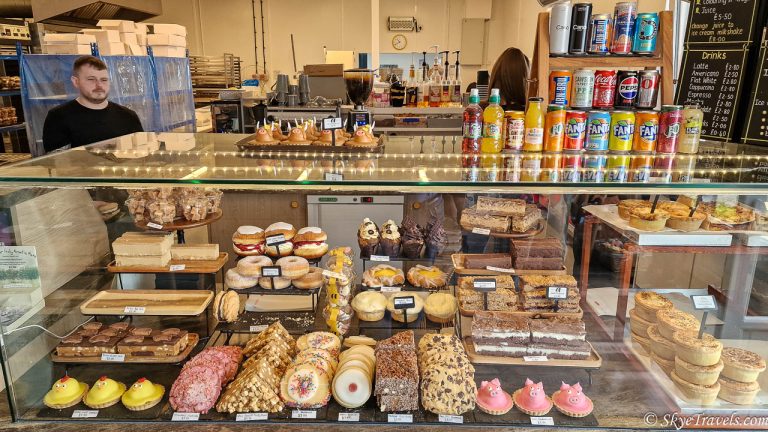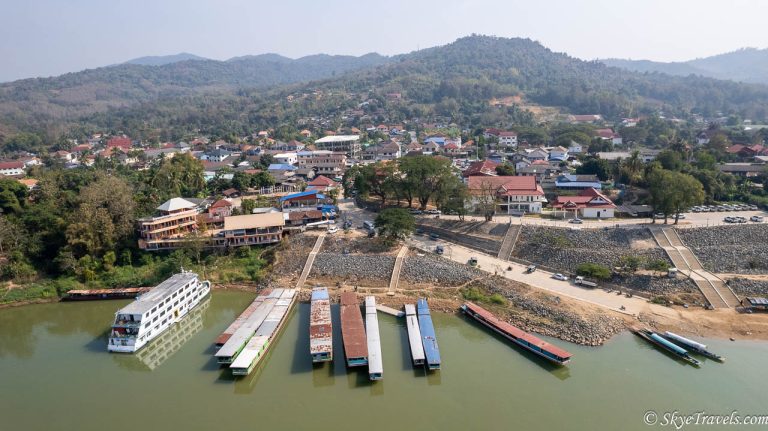I say I only drink when I have to. When I get invited to a Bordeaux wine workshop, I have to drink. Bordeaux produces many of the best wines in the world, after all.
Bordeaux’s Wine Production
It’s hard to say which country or region in the world produces the best wines. Having said that, Bordeaux is way up there. France is one of the top three wine-producing countries in the world (they fluctuate), and the Bordeaux region produces by far the most wine in the country. There are nearly 9,000 chateaux (wine estates) within Bordeaux producing roughly 450,000,000 bottles of wine each year!
Wines were first created in Georgia 8,000 years ago. They showed up in France 2,600 years ago. Since then, the French have perfected the art of winemaking. It’s interesting to note that many of the terms we use relating to wine come from French, such as sommelier (a wine professional), terroir (the environmental factors which affect winemaking), etc. Many types of wine originated in France, specifically Bordeaux, and so did many of the names for wine varieties (Pinon Noir, Merlot, etc).
The quality of wines, just like coffee or chocolate, is open to interpretation. I’m certainly no wine expert (I’m barely a novice), but in my humble opinion, Bordeaux has the best wines in the world, if only based on what I’ve tried so far around the world. I certainly haven’t sampled the $1,000-a-bottle vintages, but I can say that the little I saw and tasted in Bordeaux surpasses other countries. So whatever your level of wine knowledge or passion, Bordeaux is definitely the place to visit.
Taking the Wine Workshop as a Newbie
I was invited to the Wine Bar at Le Boutique Hotel Bordeaux for a “Dégustation Terroir de Bordeaux“, or Bordeaux terroir tasting. As mentioned, terroir refers to the environmental factors which affect wine production. Their sommelier, Riccardo Mariconti, wasn’t there that day, but his protege Cassandra was on hand to give my the Bordeaux wine tasting.
It’s more accurate to call this a Bordeaux wine workshop rather than just a wine tasting. I wasn’t just given a wine flight with some cheese and left to my own devices. Instead, Cassandra went over the different types of wines produced in the Bordeaux region and how the grapes have been exported all over the world. One of the biggest producers of Bordeaux wines (outside Bordeaux) is California, specifically Napa Valley. The terroir of California (the soil, climate and terrain) is very similar to Bordeaux. As such, not only have the vines been shipped to Napa Valley for production, but several wine families have moved from Bordeaux to set up their chateaux in sunny California.
Just because I knew very little about wine was no reason I couldn’t partake in a Bordeaux wine workshop. After all, that’s why you would want to do a wine workshop in the first place. Cassandra was very accommodating to me, explaining things in simple terms. She encouraged me to ask questions, give my feedback and in general learn as much as I could during the workshop.
Among the things I learned were the twelve aromas of red wine – strawberry, raspberry, blackcurrant, blackberry, cherry, violet, green pepper, truffle, licorice, vanilla, pepper and “smoked”. Guessing the scent certainly wasn’t easy. I’m seriously impressed by those who can call it on the first whiff.
I also learned things like putting your fingers behind the wine to see how dark it is, noting the pink or orange tinge on the edge of the wine to tell the age, swirling the wine and noting the “legs” on the glass, etc. In the two hours of the workshop, I gained a lot of information. I still consider myself a newbie, but at least not completely ignorant.
5 Wines to Sample
I thought it would be fun to put in my analysis of the five wines I tried…as a noob. These are nothing like professional opinions; just some notes I’m throwing in for the fun of it. Also, the wines that I tried certainly weren’t bottom-shelf stock. Every vintage had a Parker rating of over 90. The Parker rating is one of the standard international rating systems for wines. A wine with 90-95 is considered outstanding. It would have been hard to expect less coming out of Bordeaux.
Chateau Haut-Bergey 2016 – Pessac-Leognan Wine
The aroma I got from this wine was green pepper…which I’m pretty sure is incorrect. It’s produced with all five varietals (varieties of wine grapes) found in the Bordeaux region. I thought it had a really complex flavor, but didn’t taste particularly strong. Wine critic James Suckling described it as, “A silky and delicious wine now with very fine tannins, medium body and berry, wet-earth, lavender and currant character.”
Chateau Fonroque 2014 – Saint-Emilion
This wine, produced with 87% Merlot and 13% Cabernet Franc, was stronger than the first. It tasted well-balanced and I detected a blackcurrant aroma, or maybe blackberry. Whichever, it tasted more complex than the Pessac-Leognan.
Baron de Brane 2014 – Margaux
I’m still struggling to get the difference between tannic and acidic. This wine had a kind of “bite” which made me think it was acidic, but apparently that’s tannic. The varietals in this wine are Merlot, Cabernet Franc, Cabernet Sauvignon and Carmenere. The chateau describes it as, “Superb nose very expressive and bursting with fruits. Intense wild strawberries and licorice nose, with a touch of menthol and caramel. Beautiful finesse and aromatic richness. Straightforward in mouth, with firm yet elegant tannins. Long and dense backbone with a very nice volume and a lot of freshness. Concentrated aromatic aftertaste with floral and chocolaty notes. Long and powerful finish, remarkable tannic structure. A sexy and powerful wine!” I agree.
Les Pelerins de Lafon-Rochet 2015 – Saint-Estephe
Cassandra started off this wine by saying it wasn’t for someone who didn’t like wine, as it’s heavier and a little out there in the flavor. Wine critic Neil Goodlad described this wine as “Deep and inky. Blackberry, slightly smoky nose. But the flavour; open, smooth, big, crunchy, tobacco, coffee. This is the wine you want with your steak.” I enjoyed it myself, especially when paired with the chorizo.
Château de Sales 2012 – Pomerol
Of the five, I liked the Pomerol the most with its smooth, raspberry taste. It’s a blend of 90% Merlot and 10% Cabernet Franc, and is considered to have a slight vanilla aroma.
Tapas on the Side
A platter of tapas was provided with the wine tasting. It wasn’t a lot of food; just enough to have a nibble with each of the different wines and get an understanding of how they paired. On the platter were two types of cheese (Bleu de Gex and a French orange cheese, possibly Mimolette), chorizo, prosciutto, and some sultanas and nuts.
I tried to pair each of the tapas with each glass of wine. Unfortunately, I didn’t take thorough notes throughout, but I certainly noticed how each meat and cheese went well with a different wine. I’m just in awe of the sommeliers who can tell you exactly which wine to pair with the meal you’ve chosen.
Getting a Little Tipsy
As I said earlier, I don’t drink a lot. There have been times in my life when I did have a few drinks at a party or tried various cocktails. However, possibly due to my abnormally high metabolism, I can honestly say I’ve never been drunk. Now I can say I came kinda close. We went for our wine workshop before dinner, despite knowing I shouldn’t be drinking on an empty stomach. The portions of wine we were given weren’t a full 100 ml each, but they were close. We also drink the five glasses over the course of only about an hour, so…
I know my state wouldn’t qualify as drunk, but I think I finally understand now what tipsy feels like. My head felt a little light. That’s it. It was almost a let-down, not having all the other symptoms usually associated with too much alcohol (flushed face, dizziness, giddiness, etc). Then again, I don’t really consider any of those side effects as beneficial, so I was happy my few minutes of light-headedness was the extent of my symptoms.
Booking Your Bordeaux Wine Workshop
The Wine Workshop at the Le Boutique Hotel Bordeaux is available each day at 5 p.m. in English, and at 6 p.m. in French. The workshop lasts for over an hour and includes tapas (cheese and meats) to go with the wines.
The sommelier Riccardo Mariconti said the following about the experience. “At first, I talk with people to identify their personality, know their tastes in wine, the flavors they like it’s more of an amateur powerful red wines and full-bodied or otherwise a first meeting with a dry white wine and light. I suggest everyone a first wine without giving any information.
“I explain the origin, flavors and balance in the mouth. This is a moment of exchange and sharing. People talk to each other to compare experiences and emotions facing the same wine and give them to as information on the thought they tasted. “Far from being a formal workshop, these blind wine tastings are social and all about the pleasure of discovery.
“I adapt to each person. Some want many details, others choose to enjoy the taste without too much information to be invaded by the flavors, while others prefer to exchange them. I am very attentive to the wishes of each to offer our customers the best tasting conditions, those in which they feel comfortable.”
Click here to book your Bordeaux Wine Workshop at Le Boutique Hotel’s Wine Bar.
Click to Pin It
Further Reading
Here’s some extra reading to save hundreds on your next vacation or stage of your journey.
- 5 Steps to Book Cheap Flights
- Hostels: To Book or Not to Book
- Is Workaway Worth it for the Traveler?
- Click here to claim your $25 credit with AirB&B
Disclaimer: I was given complimentary tickets to our Bordeaux Wine Workshop on behalf of Visit Bordeaux and Le Boutique Hotel Bordeaux. As always, all views and opinions are my own. I am not responsible for any irresponsible drinking or drunk conditions resulting from the wine workshop.
This post may contain affiliate links. These links help give me the wherewithal to continue traveling at no additional cost to you. For more information, click here.










